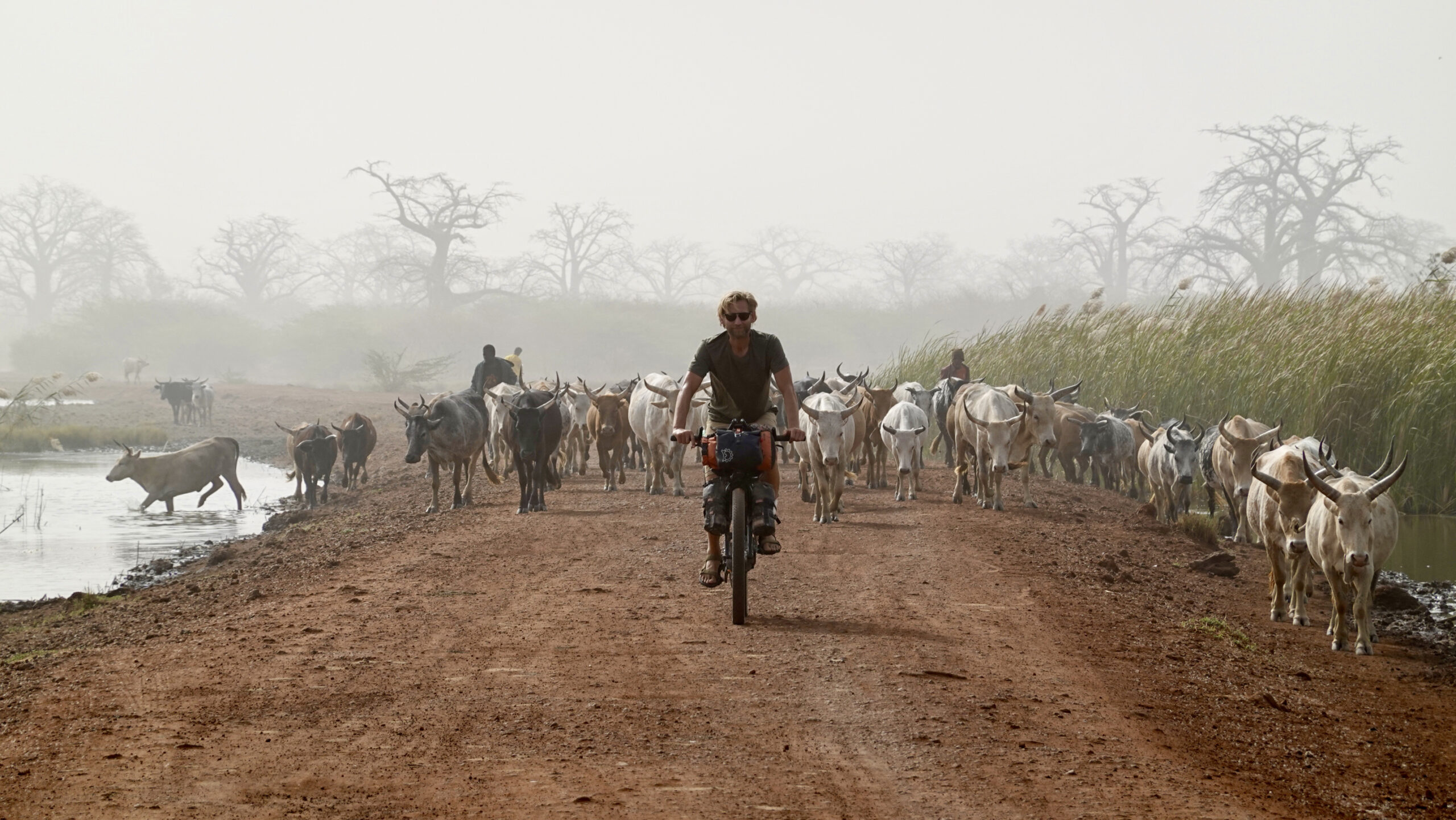In the small medical center in Janjanbureh, Kenneth sits with his foot up on an old, broken desk. The nurse has her infant in a sling on her back while she cleans the wound on Kenneth's leg with hand sanitizer. It's not exactly clean here. Nor exactly the most optimal remedies for even simple wound cleaning. You have to make do with what you have, so copious amounts of hand sanitizer are poured into the open wound.
After the dressing, we go into her office. The baby has become hungry, and although Kenneth tries to entertain while the consultation takes place, the crying is now too much. The nurse takes out one breast and begins to breastfeed while prescribing antibiotics. She seems a little tired. Maybe because she is alone at work in the medical clinic while she looks after her child. Maybe because the hospital is a bit run down, to say the least. Who knows. In any case, we discover the next day that the antibiotic is in fact a dewormer, and the cleaning with hand sanitizer has made the wound even bigger.
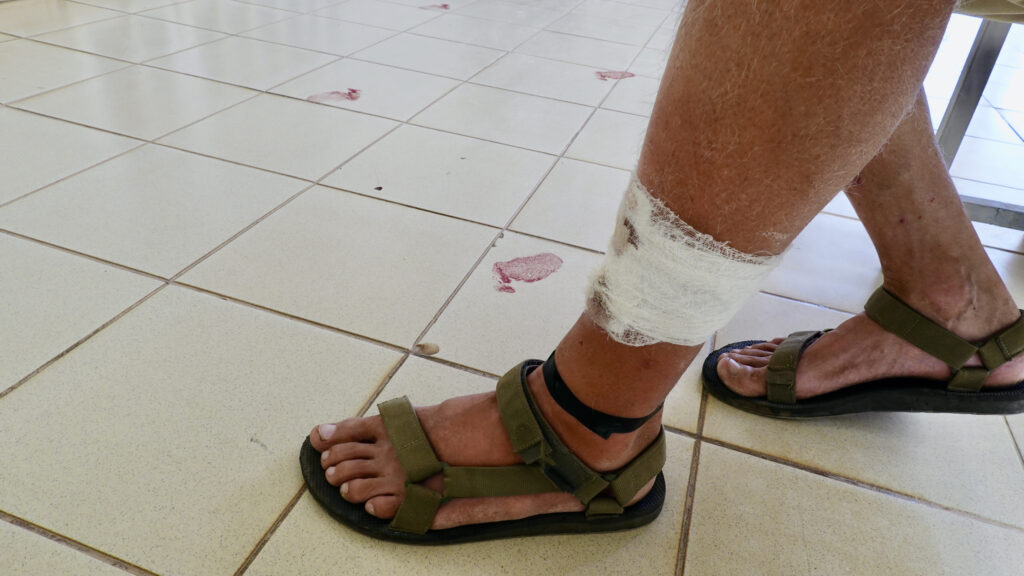
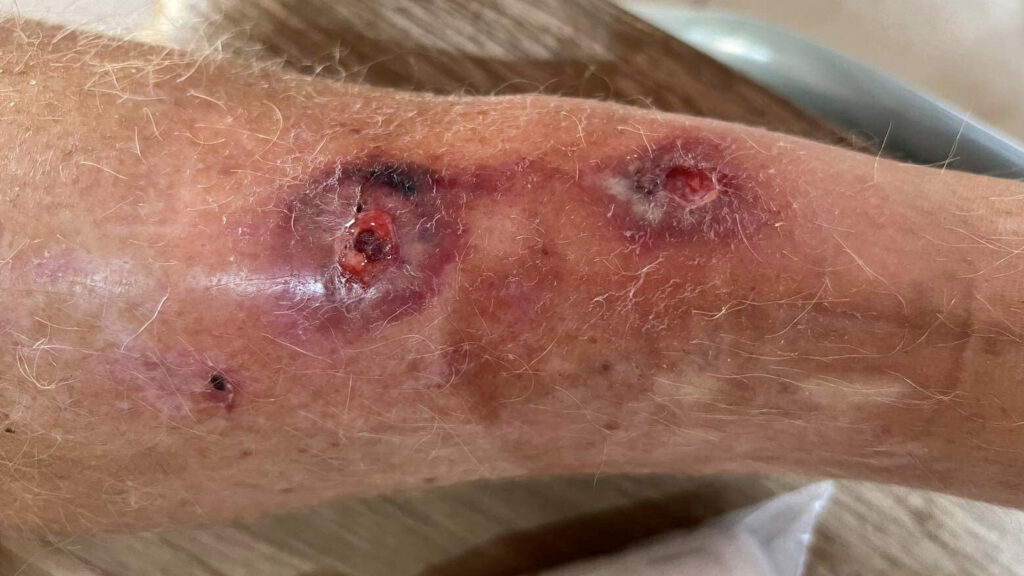
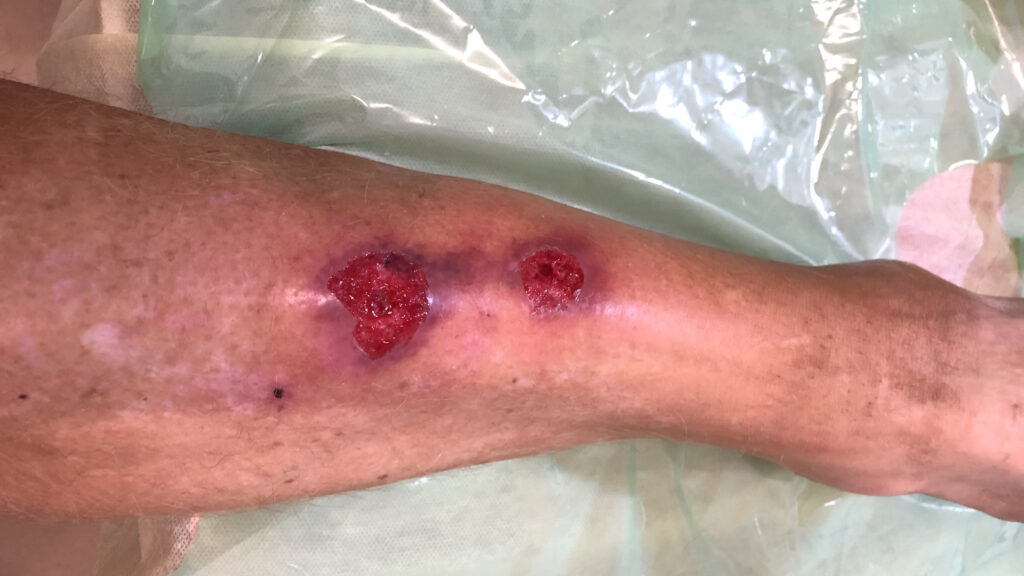
We are visiting Kebba. He is the principal of a school, and when we met him on the street outside the medical clinic, he immediately invited us to come and visit the school.
Like all other schools in The Gambia, it is built for relief funds. Together with a Czech guy, Kebba has started a project where used bicycles from the Czech Republic are shipped to Gambia and given to the students who have been in school the longest. It can mean the difference between getting to school or not, if you can cycle, instead of walking 5-7km each way.
The project is really sympathetic, and of course we immediately want to help if we can. We discuss the project with Kebba at length, and he believes that there is a deeper reason why we have met. He tells us that the biggest challenge is that most parents cannot afford to pay the DKK 10 per month that the school takes in maintenance fees. He wants that if we are going to do something together, it must be a new project. But we feel best respecting what is already underway and would like to explore the possibility of working with the Czech guy around the bikes. Instead, Kebba starts telling us about some solar panels he wants to move so they can power the school's computer room. But they lack batteries. He's stating quite openly that maybe we can donate the batteries?
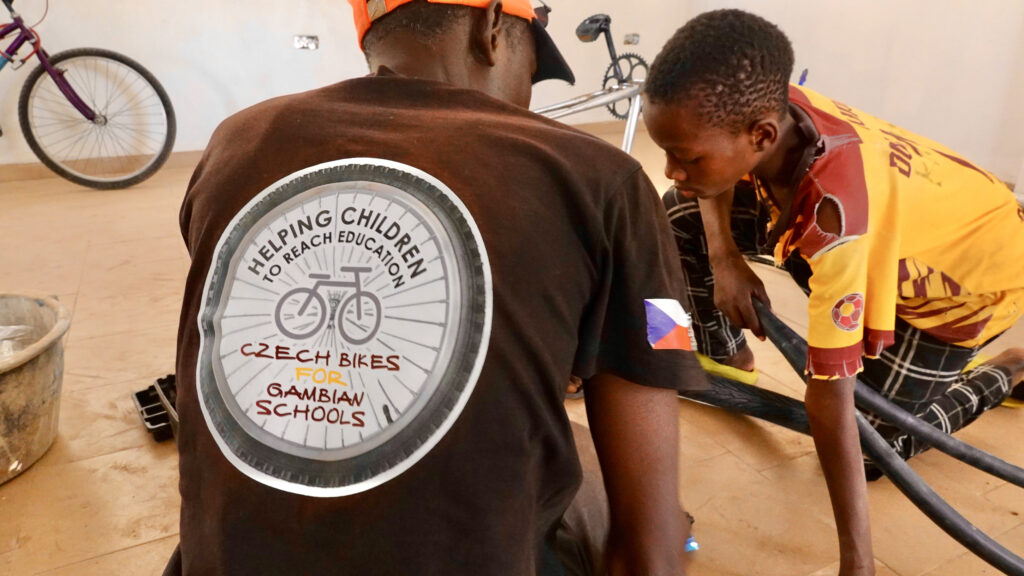
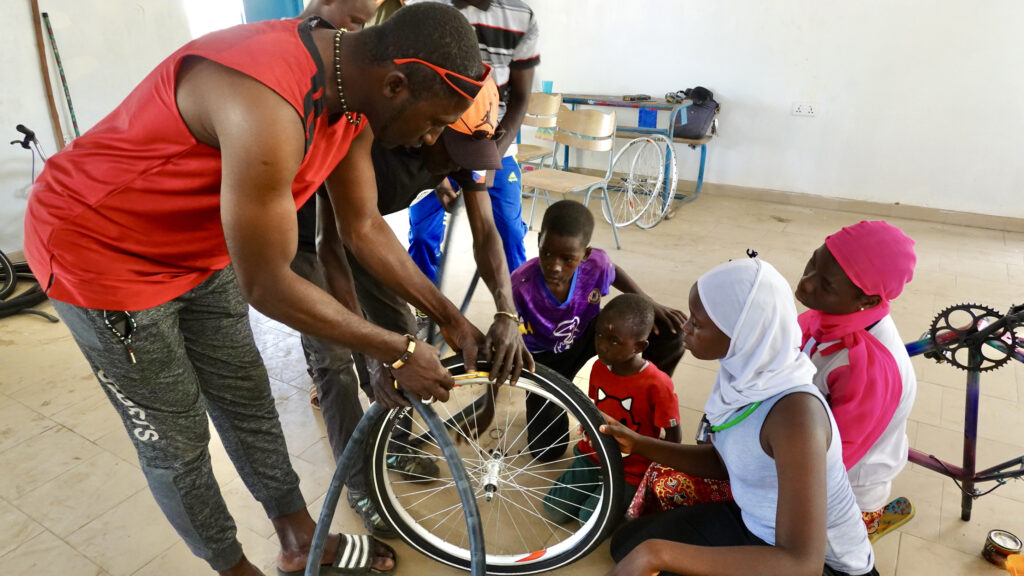
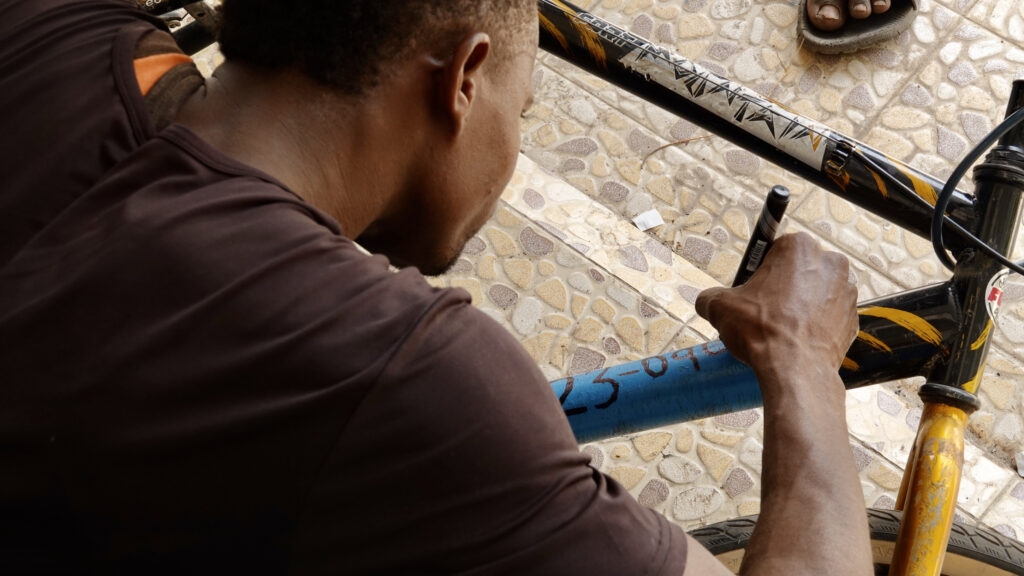
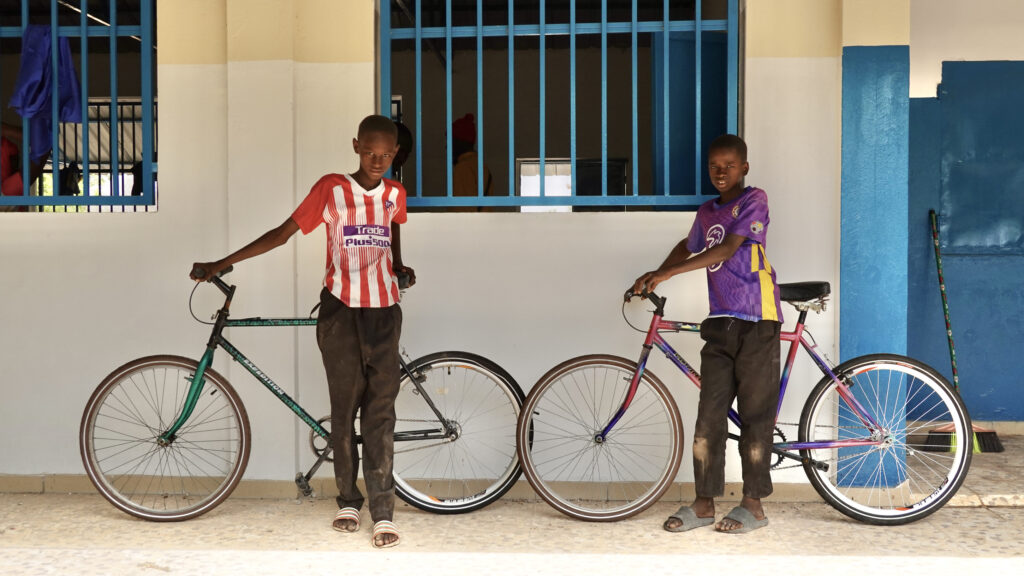
We spent the rest of the day with the teachers. We ate with them and talked with most of them. We slept in the school grounds and the next morning we drank tea together again before saying goodbye. Through the many conversations, we find out that a teacher earns DKK 300 per month. They live at the school during the week and go home to their family at the weekend. We sense that it is difficult to make a living from the job, and no one seems particularly satisfied.
Kebba promised to keep in touch, so did we. For Kebba, that means calling a few times a day. We try a more down-to-earth version, where we write occasionally. Talk of the aid project has been silenced. Both from Kebba's side, but also from ours. Because when we leave Kebba, we have only been in Gambia for a few days. Until then, we only had a quick, superficial look at a people whom we find sweet and welcoming. Over the next few days, our view becomes more nuanced and the country begins to take shape in our thoughts and minds, which is why we are now more reserved about the idea of helping the school and Kebba.
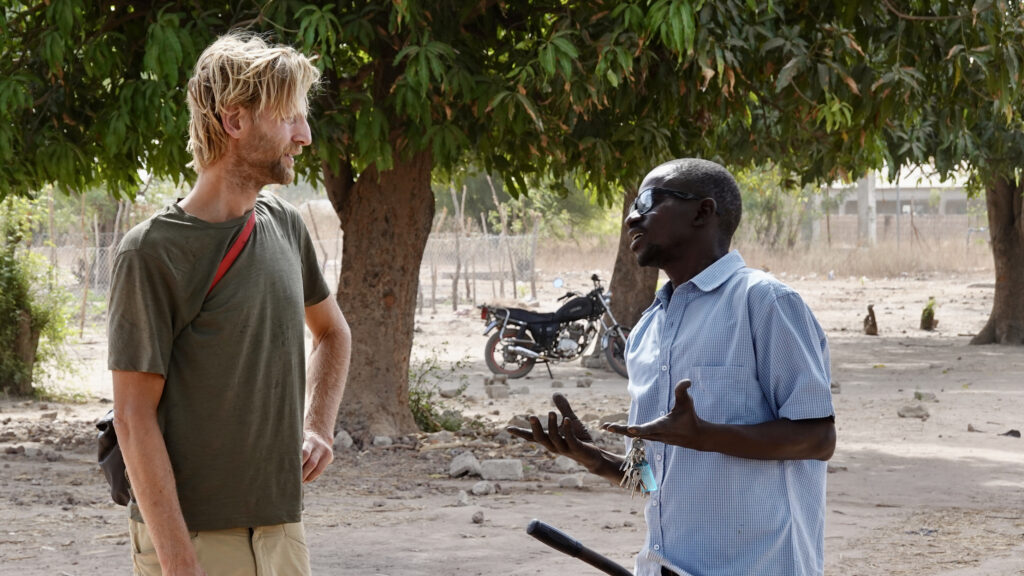
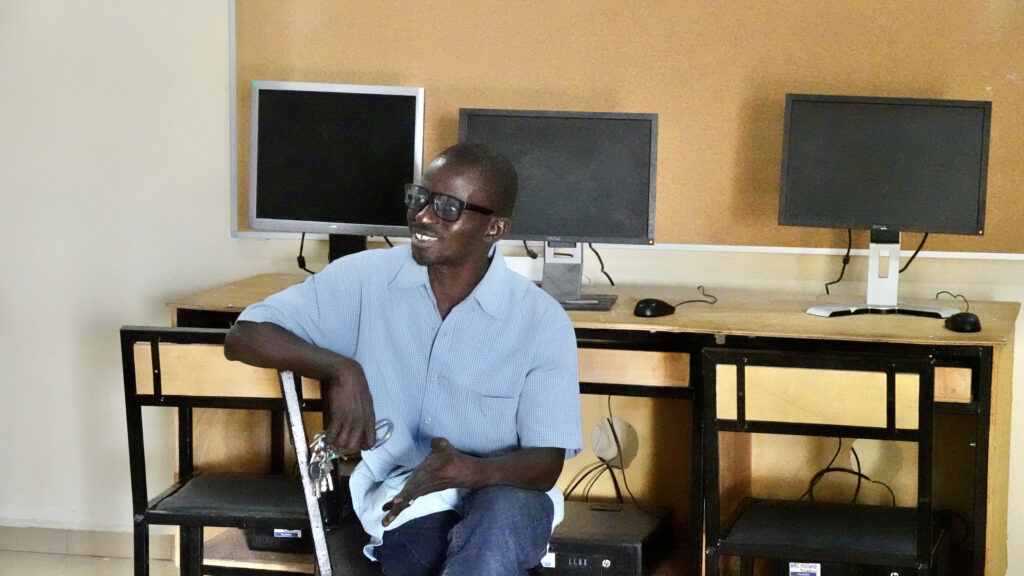

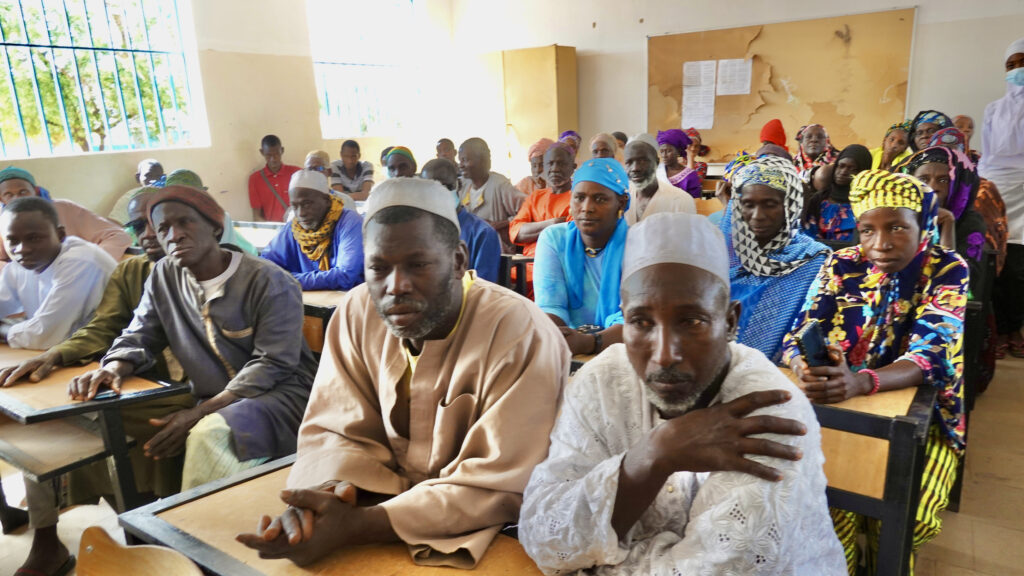
“Toubab!” another child calls after us. Another smile and another wave. Toubab means "White man". We get a lot of attention. We cannot hide behind rolled up windows and closed doors. Wherever we appear, we are visible and clear. Not just because of the bikes, but also our pale skin makes us stand out like neon lights in the moonlight. It also means that we quickly get a sense of the culture and of the locals' view of us. In The Gambia we began to feel like a money tree to be shaken. We feel that if you can get the white man to give some money, then it is significantly easier than doing something for them yourself. This is completely square drawn up, and of course not very nuanced, but nevertheless the feeling we have. On the other hand, you can say that people's shouts to us are usually just as unvarnished: "Toubab! Give me money!”. Or: “Toubab! I want your bicycle!”. There are many different variations on the same theme, but one little boy hit the nail on the head when he shouted to us: "Toubab is money!". Although it may have been a slander, it describes very well the opportunism we experience.
On the other hand, there is also a feeling that the whole thing might not even go that deep. Perhaps it is just as much something cultural, something historical, a way of living together, a survival strategy. Mafugi, who was a hospitable Gambian we stayed with in Mauritania, said: “I like working in Mauritania better because here I can decide for myself what I spend my money on. If I work and earn money in Gambia, then family and friends come and want money”. We haven't managed to delve further into this culture of sharing, but it's worth bearing in mind when we hear for the 10th time little boys yelling, “Toubab! Give me football”.
Sharing goes both ways. If we pass a group of men having lunch, they always invite: "Come and eat!". The times we have eaten with them, they always encourage us to eat more, more, more. One day when we had been shouted at a lot, and were getting a little tired in the head, we stopped in the shade under a tree. A little girl who was waiting for the bus with her mother came over and gave us each half an orange. Then you just get reset with a smile on your face, and it becomes difficult to justify to yourself why we don't just share all our money with everyone. Like when another little boy shouted, “Toubab! I miss you”.
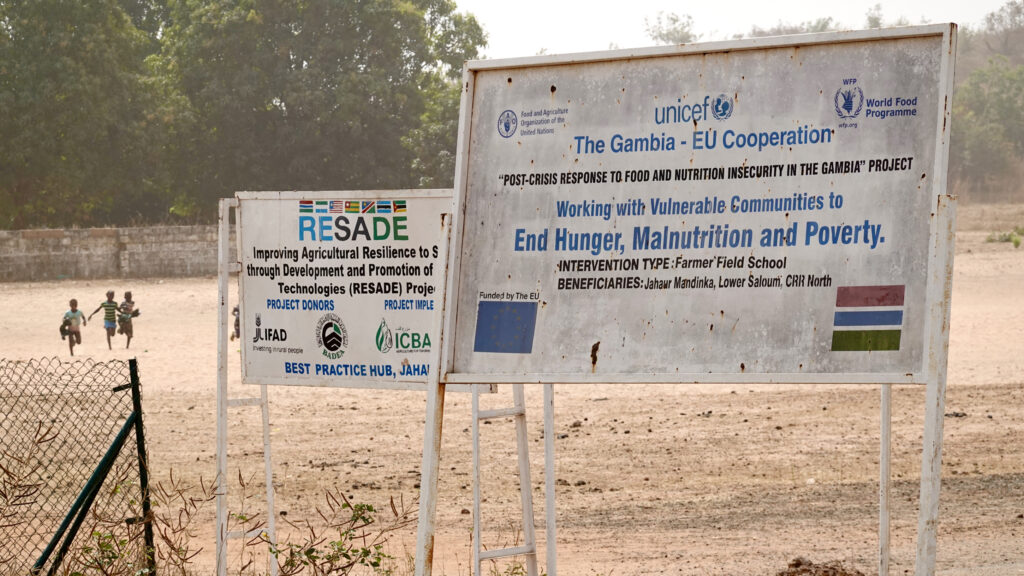
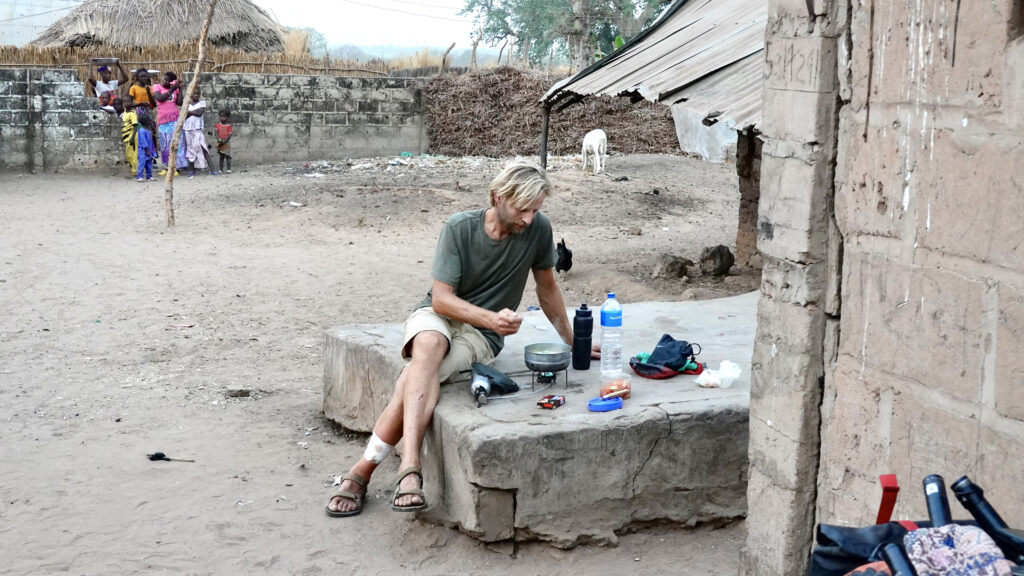
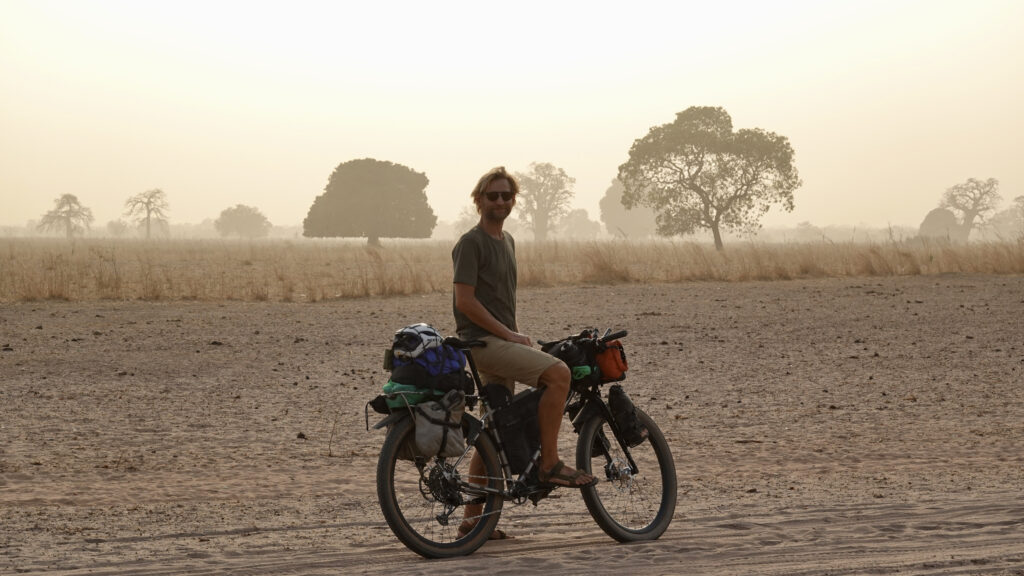
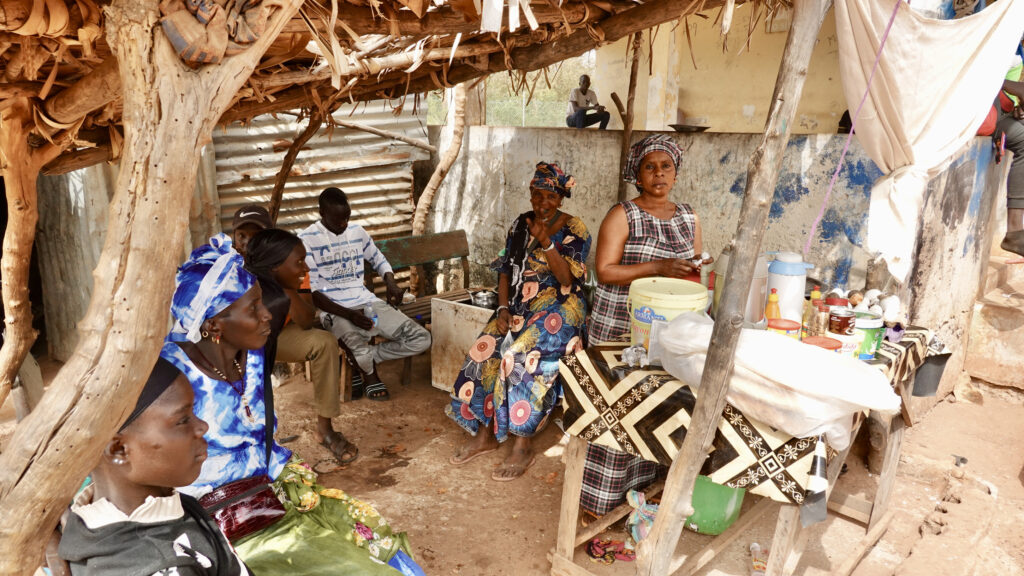
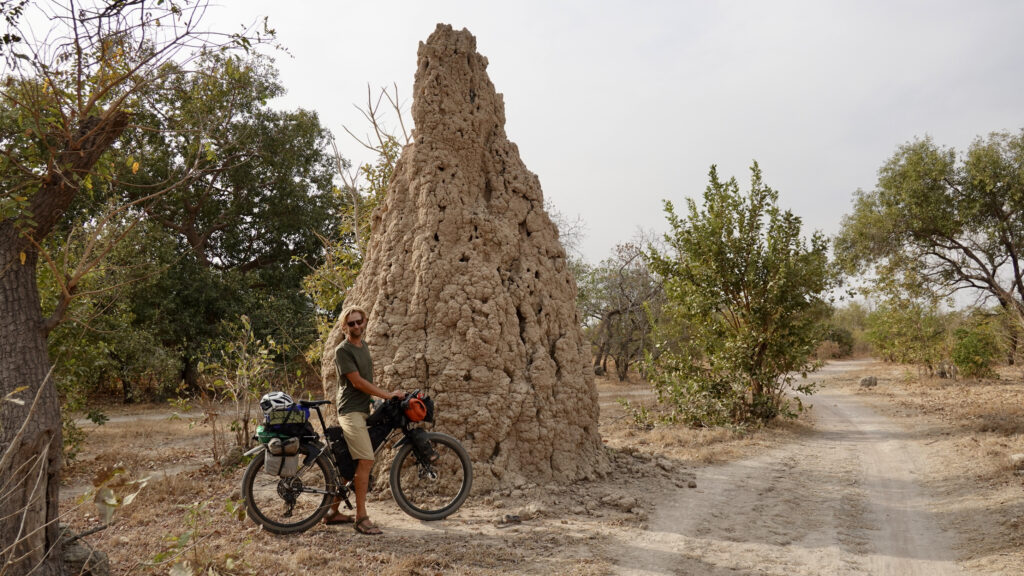
The Gambia is the smallest country on the African continent. About 1/4 the size of Denmark. About 2 million people live here, so it is one of the most densely populated countries in Africa, in stark contrast to Mauritania, which is one of the most sparsely populated countries in Africa.
About half of the population lives in poverty, on less than DKK 15 a day. On the other hand, many have subsidiary agriculture. That's why we didn't see any hunger either, not even in the smallest villages. Although a monthly salary is only enough for a little more than a large sack of rice, many manage to grow enough themselves to get by. Of course, this only applies to the countryside, so the biggest and fastest growing poverty is actually in the suburbs of the bigger cities.
But how can it really be that a country that has abundant natural resources to feed the entire population is so poor. The short clear answer is: Corruption. The long complicated answer is far more bleak, for us from rich Europe.
The Gambia has had 3 presidents since its independence from British colonial rule in 1965, all of whom have been/are fundamentally corrupt. But as we all know, if you want the real truth, you have to ask the hairdresser. So while Kenneth sat in the hairdresser's chair, the country's political quirks were whispered in his ear. The royal phrase that stands out most clearly is: "The President is not elected, he is selected". Which means that one must not believe that the president is elected by the people in free elections. No - The President is selected by Europe, in this case England - the former colonial government, and is run into office in an election that cannot be lost. If you first understand that, then you understand why Africa's situation is so desperate and why the corrupt presidents sit for life in many places, while they hold the population in an iron grip of poverty and lack of development. Because the reality is that the president of The Gambia has filled his pockets and his belly for many years, with the good will of Europe, while the population has not developed. Corruption means that if someone does a good business, you can be sure that the government will come and demand fees, taxes, fines to fill their own pockets, without thinking about the development of the country. Therefore, profitable companies move to Senegal, or close their operations in impotence and frustration. This means that all initiatives are taken from people to create a better life for themselves. Encouraging opportunism, where what you can put in your mouth now, is better than a long-term effort, because you never know when your savings will be taken from you.
Europe and the USA have provided aid to The Gambia for many years. Both organizations and private donors have built and run schools and hospitals. It is beautiful and altruistic. And with the Nordic success in shaping the population in mind, it is the right approach. The problem arises when you only help with one hand while destroying the country with the other. Because the West still buys goods and natural resources far too cheaply from Gambia, while at the same time we sell our processed goods back in far too large a style. The Gambia imports about 12 times as much as it exports. It is a completely hopeless calculation for a poor country. So at the same time as the West provides emergency aid with one hand, we contribute to draining the country of economy with the other. Especially when we let the corrupt government run rampant before considering the population.
We asked Kebba what he thinks about China's recent presence in Gambia: “After 50 years with the West, it's good to try something new. But we know that the agreements with China are also bad and harm our country. The problem is still that our leaders are lining their pockets while the people suffer.”
In eastern Gambia we saw a "Friendship Bridge" built by China. In return, China has obtained large fishing rights off the coast of Gambia.
On the banks of the Gambia River lies Kaur, a small village. Here we spoke to one of the local fishermen. He was a second generation fisherman in the family. But he will probably also be the last, because the fish have disappeared from the river. Previously, he could be out for a few hours to collect the day's catch. Now he can't even catch enough after a full day on the water. This is the result for the local population after the government has filled their own pockets and given the fishing rights on the coast to China, which is massively overfishing to the detriment of the fish population.
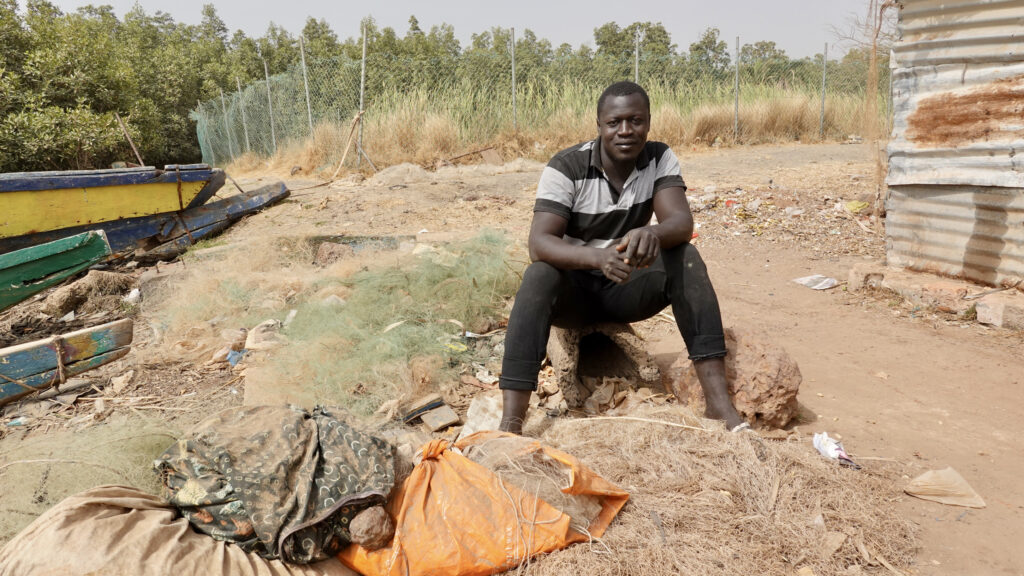
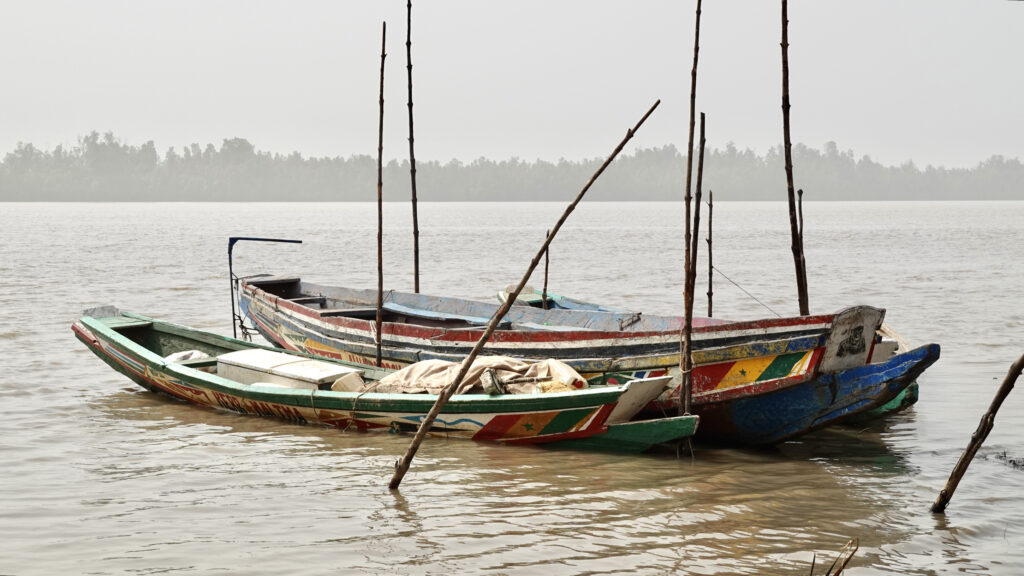
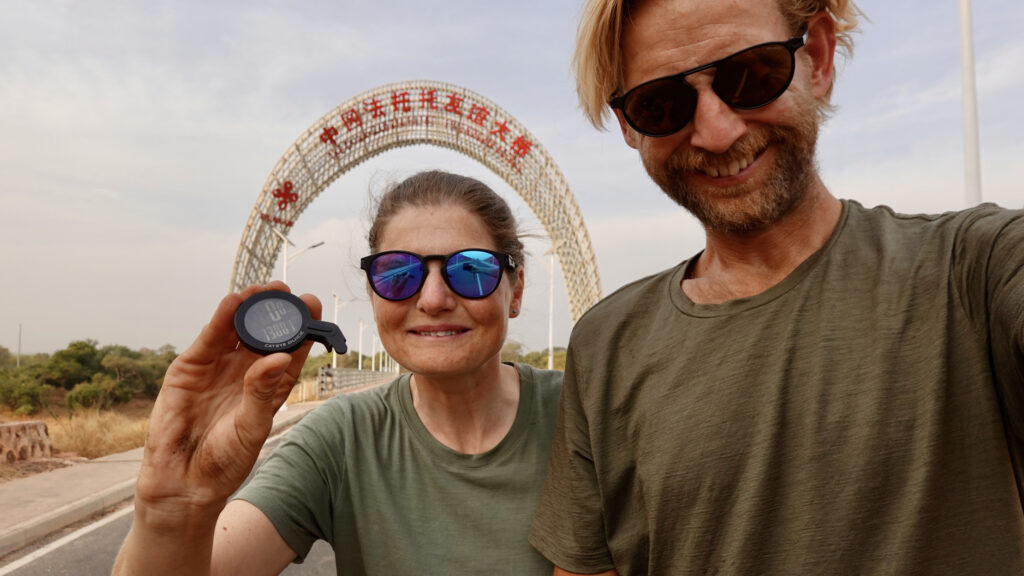
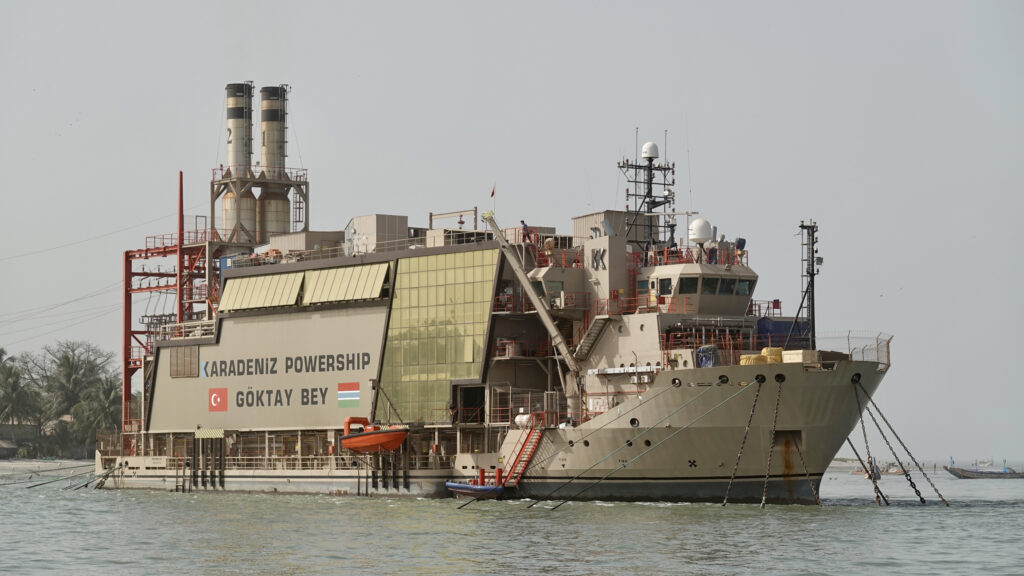
All in all, it paints a picture of a population that is locked in poverty without the possibility of creating a better future for themselves and the country. Therefore, many young Gambians of both sexes marry foreigners, either in the hope of leaving the country, or in the hope of being supported for the rest of their lives.
Everyone we spoke to says there is no hope for The Gambia. No matter how we try to ask about the possibilities for The Gambia to rise up, feed itself, develop, become independent, the answer is the same: There is no hope!.
In that context, we understand better why you take the chance and ask the white man if he will give you some money, instead of making a long-term effort yourself, to create your own future.
Although it is a sad and painful realization, it leads us to a place where we feel that it does not make sense to help Kebba. It is tragic to think that we will not help people who need it. But our realization is that Kebba doesn't need a battery for his solar cells, or more bikes. He needs a revolution and a leader who believes that the country must be raised with the strength of the people. That it must be built up from below. That there must be an end to corruption and being in the pocket of Europe. Until that happens, The Gambia is a black hole you can pour enough money into without it moving anything.
Will it be difficult? Yes – extremely difficult. And unfortunately, the West is most satisfied with the status quo, because that's how we make the most money on Africa, and that's how there's the least trouble and problems. But other countries in Africa are far stronger than Gambia. Elsewhere, the young population is far more dissatisfied and far more ready for action. And THAT is interesting to follow…
Despite Gambia's poor prospects, it is impossible not to love Gambians. They possess a patience and a spaciousness that few people envy. Here is a short way to smiles, laughter and kindness.
While Kenneth's wound needed rest and care to heal, we spent the time together with Finn, Hanne and Anita at Dana Lodge in convenient proximity to the capital's better hospitals. We had hours of deep and really interesting conversations about life and culture in The Gambia.
Hanne and Finn have spent many years in the country building up various businesses. Although they too told depressing stories and a lack of faith in The Gambia's future, we felt that they were driven by something else – love for The Gambia and Gambians. One night we went out dancing with them. The streets were full of life and smiles. The bars full of people celebrating life and taking a big bite out of it. Young and old, fat and thin, black and white. Everyone is united in the desire for life and community.
These are the memories that fill our hearts the most.

